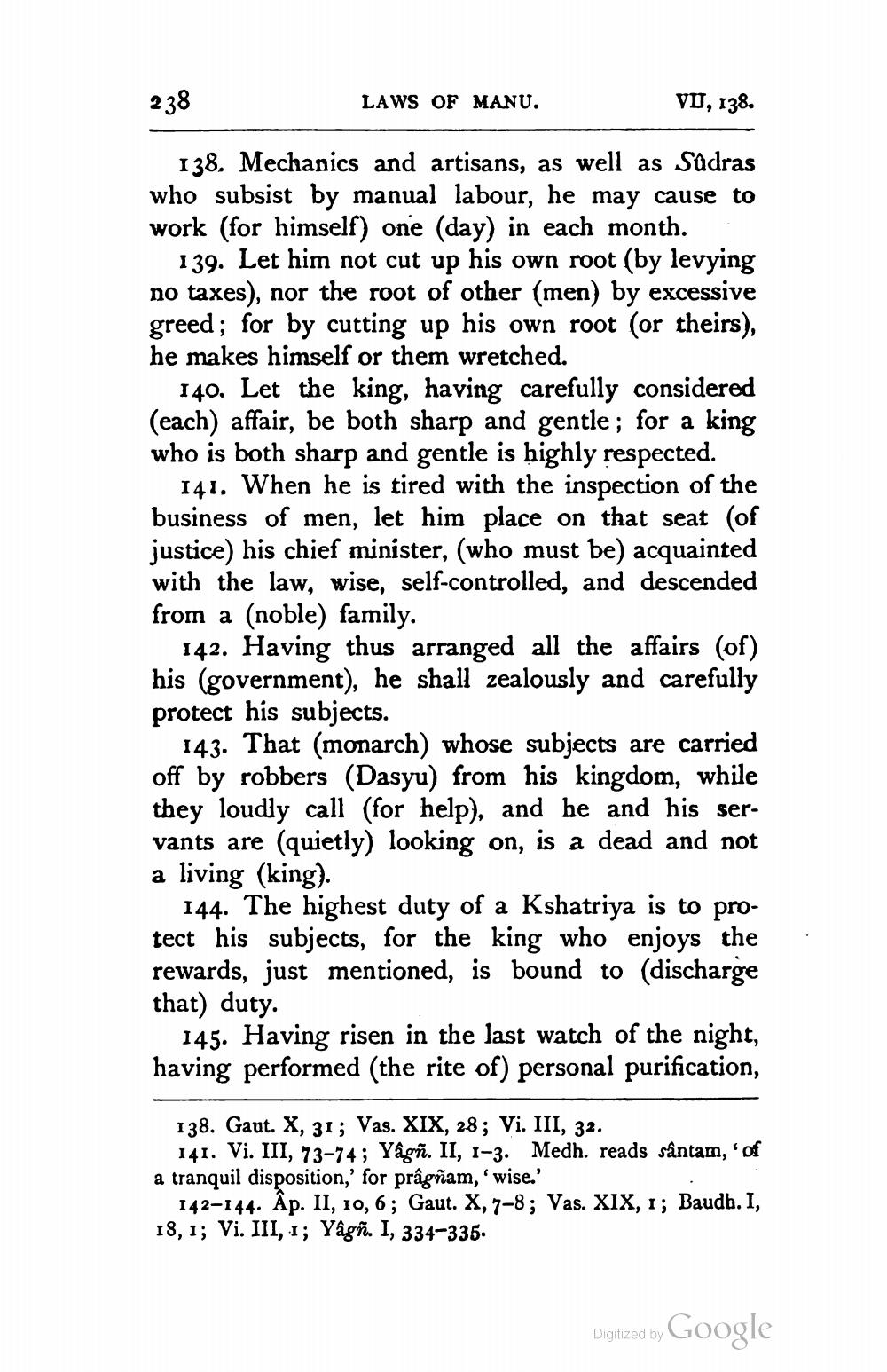________________
238
LAWS OF MANU.
VD, 138.
138. Mechanics and artisans, as well as Sudras who subsist by manual labour, he may cause to work (for himself) one (day) in each month.
139. Let him not cut up his own root (by levying no taxes), nor the root of other (men) by excessive greed; for by cutting up his own root (or theirs), he makes himself or them wretched.
140. Let the king, having carefully considered (each) affair, be both sharp and gentle; for a king who is both sharp and gentle is highly respected.
141. When he is tired with the inspection of the business of men, let him place on that seat (of justice) his chief minister, (who must be) acquainted with the law, wise, self-controlled, and descended from a (noble) family.
142. Having thus arranged all the affairs (of) his (government), he shall zealously and carefully protect his subjects.
143. That (monarch) whose subjects are carried off by robbers (Dasyu) from his kingdom, while they loudly call (for help), and he and his servants are (quietly) looking on, is a dead and not a living (king).
144. The highest duty of a Kshatriya is to protect his subjects, for the king who enjoys the rewards, just mentioned, is bound to (discharge that) duty.
145. Having risen in the last watch of the night, having performed (the rite of) personal purification,
138. Gaut. X, 31; Vas. XIX, 28; Vi. III, 32.
141. Vi. III, 73-74; Yagñ. II, 1-3. Medh. reads såntam,'of a tranquil disposition,' for prâgñam,'wise.'
142–144. Ap. II, 10, 6; Gaut. X, 7-8; Vas. XIX, 1; Baudh. I, 18, 1; Vi. III, 1; Yâgñ. I, 334-335.
Digitized by
Digitized by Google




